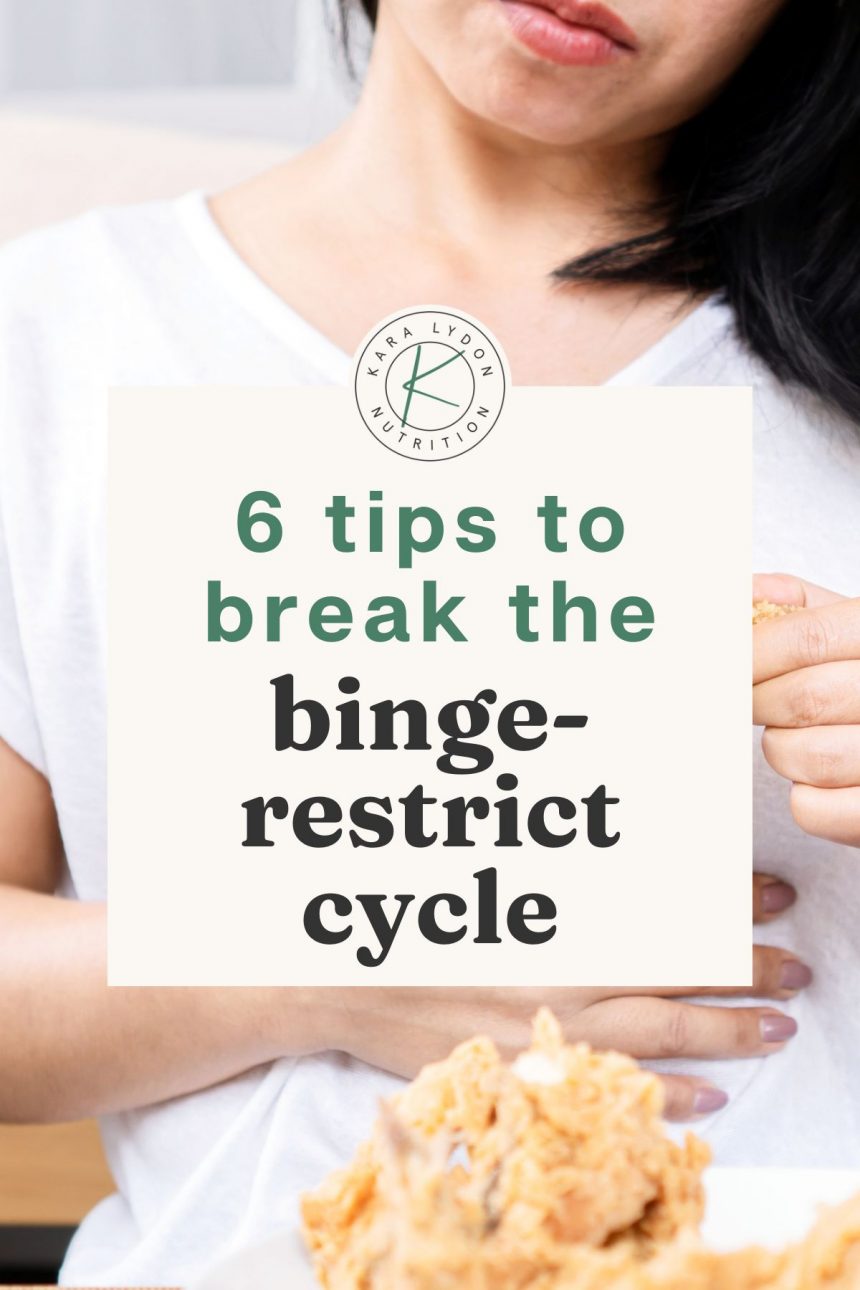Stuck in the never-ending cycle of dieting, feeling out of control around food, and experiencing shame? You may be caught in the binge-restrict cycle. Discover what this cycle entails, the science behind it, and five effective tips to break free.
What is the Binge-Restrict Cycle?
The binge-restrict cycle occurs when an individual alternates between restricting food intake and binging or overeating to a point of discomfort. This pattern often affects those who have been following diets and limiting their food intake. The cycle can be broken down into four steps:
- Restricting food: This involves cutting back on portion sizes, tracking calories, and eating significantly less than usual.
- Food preoccupation and cravings: After restricting, thoughts about food become constant and intense cravings, especially for carbohydrates, arise.
- Binge / feel out of control around food: Due to intense cravings and deprivation, individuals may binge or overeat to the point of physical discomfort.
- Feel guilty or ashamed: Following a binge, feelings of guilt and shame often emerge, leading to promises of strict dieting to make up for the overeating.
Understanding Restriction and Binging
Restriction involves limiting food intake in various ways, such as counting calories, cutting out food groups, or depriving oneself of favorite foods. On the other hand, a binge is characterized by consuming an abnormally large amount of food in a short period, often accompanied by a sense of loss of control.
The Science Behind the Cycle
Why do intense carb cravings occur during restriction? This is not a sign of failure but a physiological response to starvation. When food intake is restricted, the body goes through hormonal changes to survive. One hormone, neuropeptide Y (NPY), increases cravings for carbohydrates, leading to binge-like behaviors. Research also shows that anticipation of food restriction can trigger binging tendencies.
5 Tips to Break Free from the Cycle
- Eat enough: Ensure you are consuming an adequate amount of food regularly to prevent binging due to deprivation.
- Include favorite foods: Avoiding certain foods can increase cravings. Incorporate your favorite foods into your meals to reduce the allure of forbidden foods.
- Honor hunger cues: Listen to your body’s signals of hunger and feed it when needed, rather than waiting for a specific mealtime.
- Practice curiosity: Instead of judgment, be curious about your triggers and needs before a binge episode.
- Identify coping skills: Explore non-food-related ways to meet emotional needs, such as relaxation, connection, or pleasure.
If you find yourself trapped in the binge-restrict cycle, these tips can help you break free and establish a healthier relationship with food. Remember, seeking professional support can also be beneficial in overcoming this challenging cycle.






